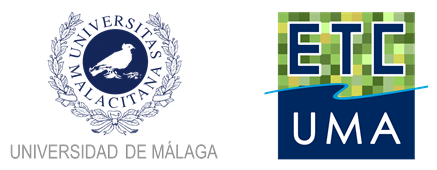More than 80 experts including representatives of different units of DG Environment, regional stakeholders and Member State representatives met on 27-28 June 2017 in Brussels for the Mapping and Assessing Ecosystems and their Services (MAES) workshop organized by the European Commission, the European Environment Agency, the Joint Research Centre, the European Topic Centre for Biodiversity and the European Topic Centre on Urban Land Use Systems.
The aim of the workshop was to identify and agree a common set of indicators for assessing the ecosystem condition within each of the MAES ecosystem types and to support Target 2 of the EU Biodiversity Strategy to 2020. Target 2 of the Strategy calls to maintain and enhance ecosystems and their services by establishing green infrastructure and restoring at least 15 % of degraded ecosystems by 2020.
The European Topic Centre of the University of Malaga (ETC-UMA) has contributed to develop and feed the analytical framework introduced and discussed during the workshop and presented the work in progress for assessing the condition of some ecosystem types at European scale and the latest research developments linking the condition of ecosystems to their capacity to provide essential services. How these results could contribute to solve policy questions related to restoration targets was evidenced with concrete examples. The capacity of European agroecosystems and woodlands to provide pollination services, part of the work developed within the ETC-ULS work with the European Environment Agency (EEA), was also showcased.
As a main partner within the Satellite Based Wetland Observation Service (SWOS) Horizon 2020 project, ETC-UMA highlighted the research results on the usability of the indicators produced by the project to assess and monitor in particular wetlands’ ecosystem condition and their capacity to provide services. This work was discussed among participants; particularly the prioritization of data and indicators, agreements on gaps and opportunities and next stages to consolidate these developments.
The approved set of indicators will be tested with data at EU level. During a second phase, Member States and stakeholders will be asked to use the framework at national/sub-national level and report to the MAES working group on 13 September 2017. A MAES report synthesising main outcomes will be issued by the end of the year.
More information: christoph.schroder@uma.es



